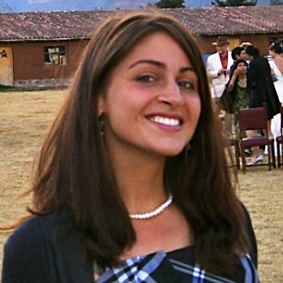Knauss legislative fellowships in Congress help build careers — and they're fun and educational. See our video and fact sheet for details.
Emily Tewes

Fellowship Institution:
NOAA Assistant Administrator Climate Goal BoardStart Year:
2014Emily Tewes dug into climate change as she worked with the Assistant Administrator Climate Goal Board at NOAA.
This group, made up of assistant administrators from different office of NOAA, advises the agency’s top leaders about issues related to climate change as they develop national policies. In particular, the board is addressing extreme weather events, how climate affects water resources, building more resilient coasts, and ensuring the sustainability of marine ecosystems.
In 2013, she earned her master’s degree from the Marine Estuarine Environmental Science program at the University of Maryland Eastern Shore. There, she studied how offshore wind projects might affect ocean bottom habitats along Maryland’s Atlantic Coast.
Tewes hails originally from Kansas City, Missouri. She decided to pursue a career in science after spending a year studying sharks off the coast of Florida as part of NOAA’s Shark Population Assessment Group. She’s worked on research studies exploring a wide range of subjects, including plant chemical ecology, ornithology, and fisheries science.
She’s broadly interested in research on creating sustainable fisheries and is excited to assist NOAA in its mission to promote climate science and help communities respond to climate change. Following her fellowship, she accepted a position working with the NOAA Teacher at Sea Program. When she is not working, she enjoys yoga and bird watching.
Call for Symposium Presenters and Authors
The Chesapeake Rising: Innovative Law and Policy Solutions for Climate Adaptation in Coastal Communities symposium will explore key legal and policy considerations that affect climate adaptation strategies. It provides a unique opportunity for upper-level law students and early-career lawyers to present and publish their legal scholarship.
Program Announcements
-
-
Maryland Sea Grant has program development funds for start-up efforts, graduate student research, or strategic support for emerging areas of research. Apply here.
News and Blogs
Video Gallery
Sea Grant Film Explores a Diminishing Smithville
Smithville is a community on Maryland’s Eastern Shore, on the edge of the Blackwater National Wildlife Refuge. A century ago, Smithville had more than 100 residents. Today, it has four, in two homes: an elderly couple, and one elderly woman and her son, who cares for her.
Featured Fellow
Featured Research Project
Developing a habitat model for mysids, an important link in Chesapeake Bay food webs
Mysids are important mesozooplankton prey for many species of fish in Chesapeake Bay and are an important link in transferring energy from lower to upper trophic levels. Mysids also serve as biological vectors for benthic-pelagic coupling due to their diel vertical migration and omnivorous prey-switching behavior, which makes mysids important regulators of food web architecture. Despite their central role in coastal food webs, surprisingly little is known about mysid ecology and dynamics in Chesapeake Bay.
The Blue Crab: Callinectes Sapidus
An essential resource for researchers, students, and managers. Get your copy today!


©2025 Maryland Sea Grant. All rights reserved.
5825 University Research Court, Suite 1350 | College Park, MD 20740
Phone: (301) 405-7500 | Fax: (301) 314-5780 | Contact Us



